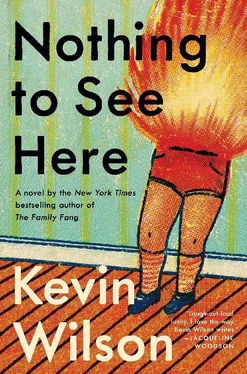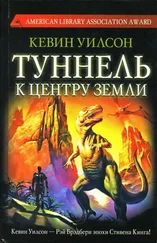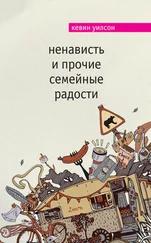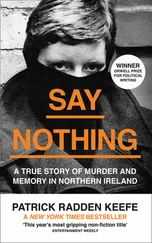Bessie and Roland stood up, focused on the screen. And all three of us could see it so clearly. It was right there.
Timothy was on fire.
He was completely ablaze, not like the popping and crackling, no little sparks. Real fire. Madison screamed, dropping him on the ground, out of sight of the camera. Her dress was smoking, just these little wisps of smoke rising off of her. Jasper didn’t seem to understand what was going on, kept looking ahead as if turning around would be a major sign of weakness, as if someone else would handle it. But now Madison was really screaming, and there was Carl, his jacket off, slapping the ground, where I imagined Timothy was. And finally the camera kind of moved, adjusted so that Jasper was now offscreen, who gave a fuck about him, and there was Timothy, kind of crouched on the ground, burning so perfectly, brilliantly burning. I could hear all these voices, but over the noise there was Jasper’s voice, distorted and angry, yelling Madison’s name over and over.
“Holy shit,” Bessie and Roland said at the same time.
And then, like magic, Timothy wasn’t on fire. He was fine. He was actually smiling, not a hair out of place. Carl wrapped him up in the jacket and lifted him into his arms, and some other men in suits and sunglasses kind of blocked everything off, and they all ran toward this long line of identical black cars. And the cars drove off. And that was it. They cut back to the studio, where a man in tweed looked like he’d eaten poison. He made this dry little hissing sound, like we hadn’t all just seen this kid on fire, and he said, “A historic day as the Senate confirms the appointment—”
I looked over at the kids just as I felt the temperature of the room subtly shift. And they were rigid, staring at the screen, their eyes so wide. And even with the Nomex clothing, I could see them starting to burn. “Outside!” I shouted, because I knew that fucking breathing exercises were not going to work. I knew what was coming. But the kids weren’t moving, and now they were really smoking, and the air smelled like chemicals, so dense and acrid.
“Bessie!” I shouted. “Roland! C’mon, kiddos. Let’s go outside.”
I started pulling on them, and they finally seemed to snap out of it. They walked with me to the front door and we stepped outside, the weather so clear, so perfect. The sun was high up in the sky. Bessie and Roland walked onto the lawn. And they were laughing. They were laughing hard. And it was difficult to look at them, they were so bright, this white, blinding light. And then they were on fire, too, these vivid red and yellow flames. They stood there, burning. And I was happy. I knew they were okay. I knew that they couldn’t be hurt. The grass turned black at their feet, and the air around them turned shimmery. It was beautiful. They were beautiful.
Inside the guesthouse, the phone was ringing, again and again and again, but I didn’t move. I looked across the lawn, and Mary was standing on the back porch, watching the children, completely unaffected, as if she were watching some ordinary birds at a feeder. I waved to her, and she waited for a few seconds before she waved back.
The kids ran in circles, the flame trailing off of them and falling to the ground, where the grass caught fire for a second before it smoldered. They burned and burned, like they were eternal. But I knew that it would die down, that it would fade away, back inside them, wherever it hid. I knew that soon they would turn back into the kids I knew so well, their weird bodies and tics. I didn’t try to catch them or put them out. I let them burn. I sat on the porch, a perfect day, and watched them burn. Because I knew that when it was over, when the fire disappeared, they would come right back to me.
We barely slept that night, so revved up, nothing we could do about it. The minute the sun rose, the kids jumped out of bed. The sheets were sticky from the fire gel, beyond saving, and the kids took turns in the shower to wash the rest of it off. I didn’t try to stop them. It seemed pointless. Either they’d burn the house down or they wouldn’t.
When I’d finally answered the phone the day before, Carl, who sounded out of breath, said that they were coming home, driving back to Nashville. He said that Madison was handling damage control, that I wasn’t to talk to anyone. He told me to keep the kids inside the house, to cover them in fire gel. “Keep them safe, okay?” he said, and before I could ask about Timothy, he hung up.
Bessie and Roland wanted to see it again, over and over, Timothy on fire, but I unplugged the television, knew that it would only make it worse, that it was already burned onto the insides of our eyelids. Of course, I wondered what was going on outside of our house, what the newspapers would say, but I just pushed it out of my mind. I focused on these two kids.
After they’d finally stopped burning, we’d peeled off the ruined Nomex and put on a fresh set of clothes. I’d made them sit on the sofa, dumped a bunch of apples on the coffee table, and we’d read three Penny Nichols novels, my voice droning and droning, working our way through the mystery to that moment when it all comes into the light. This was how we’d survive, huddled together, words on the page, the ending of one story just a moment of silence before a new story began. And we made it. The kids were happy. They had added another to their numbers. They didn’t want to set the world on fire. They just wanted to be less alone in it.
It took some coaxing, but I got them to do thirty minutes of yoga, and while they ate cereal, I ran over to the mansion to get a copy of the newspaper. I could not imagine the angle, how the narrative would be assembled. I wanted to know if Bessie and Roland would be mentioned, to be prepared. I knocked on the back door until Mary opened it for me. “Do you want something to eat?” she asked, and I did kind of want a bacon sandwich, but I ignored that desire and got on with it.
“I wanted to get a copy of the newspaper,” I told her. She stared at me, unblinking. I had no idea whether she knew about Timothy. I wanted to say something, but it’s a hard thing to introduce into polite conversation.
“Come in,” she finally said.
All the lights in the house were off, no activity.
“Kind of spooky in here,” I said.
“Everyone else has the week off,” she said.
“That’s nice, I guess,” I said.
“Here’s the newspaper,” she said, handing me a copy of the Tennessean . And there it was, the headline: fire mishap mars roberts confirmation.
“Oh shit,” I said, looking at the picture of Jasper, his face both confused and furious, being hustled to the car, Madison right behind him. I looked for Timothy and Carl, but they must have already been inside the car.
“Mmm,” Mary said, noncommittal, almost bored.
“Did you see it on TV?” I asked.
“I don’t watch television,” she replied.
“You saw us yesterday, though,” I said. “In the yard? Bessie and Roland.”
“I saw it, yes,” she replied.
“That’s what happened to Timothy,” I told her.
“I figured as much,” she said. I couldn’t tell if it was because of her position in the household, one of servitude, or if her natural demeanor simply wouldn’t allow the display of emotion for people who didn’t deserve it.
I read the article, which repeated the official statement from Jasper Roberts, which was that a spark had caused Timothy’s shirt, which had been heavily starched in anticipation of the press conference, to momentarily catch on fire. The boy had been treated for minor burns, as had Madison, and released from the hospital that same day. It went on to state that Jasper would return to Tennessee so that Timothy could be seen by the family’s personal physician. And then, that was it. I flipped through the section, looking for more information, but there was nothing else. There was another article about what the implications were for national security, how Jasper would both continue the work of the previous secretary and build upon that work. I couldn’t believe that something so strange could be met with such an easy willingness to disbelieve that it had happened. A starched fucking shirt? Really?
Читать дальше












